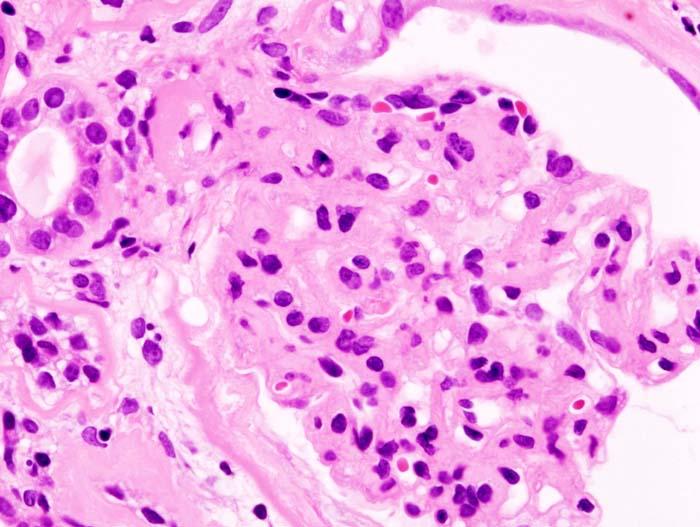Understanding Kidney Disease and Its Complex Causes

Have you ever wondered what's happening inside your body when it's not working quite right? When it comes to the kidneys, things can get pretty complex. At NephCure Inc., we believe that understanding your health is the first step toward managing it. That’s why we want to talk about some specific kidney conditions, like nephrotic syndrome and focal segmental glomerulosclerosis (FSGS), and the surprising role that genetics can play.
It's a lot to take in, but we're here to break it down in a way that’s easy to understand. Knowledge is power, and when you know what to look for and what might be causing a problem, you can have more productive conversations with your doctor and feel more in control of your health journey.
Recognizing Nephrotic Syndrome Symptoms
First, let's talk about nephrotic syndrome symptoms. This is a collection of signs and symptoms that indicate your kidneys' filters, called glomeruli, are damaged and leaking too much protein into your urine. It's a condition, not a disease itself, and it can be caused by many different kidney diseases.
Here's what you might notice if you or a loved one is experiencing these symptoms:
-
Puffy Swelling (Edema): This is one of the most noticeable signs. Protein in your blood helps keep fluid from leaking out of your blood vessels into your tissues. When you lose too much protein, fluid can build up, leading to swelling, especially around the eyes, ankles, and feet.
-
Foamy or Frothy Urine: This is a direct result of too much protein in your urine (a condition called proteinuria). The protein creates bubbles that make the urine look foamy, similar to the head on a beer.
-
Weight Gain: The fluid retention from edema can cause you to gain weight unexpectedly.
-
Fatigue: Losing protein can affect your body's overall function, making you feel more tired than usual.
-
Loss of Appetite: This can be a secondary symptom caused by the other changes happening in your body.
If you notice any of these signs, it's important to talk to a doctor. Catching these symptoms early can be a critical step toward a better outcome.
The Genetic Link: The Role of the APOL1 Gene
Now, let's get into the fascinating world of genetics and how it can influence kidney health. You may not have heard of the APOL1 gene kidney disease connection, but it's a very important one, especially for people of African descent.
The APOL1 gene has two specific variants that, when inherited, can significantly increase the risk of developing certain kidney diseases, including FSGS. Interestingly, these gene variants evolved in West Africa to protect against African sleeping sickness. But, in some individuals, they can also contribute to kidney disease. It's a complex example of how a gene that once offered protection can, under different circumstances, lead to health challenges.
At NephCure Inc., we're deeply invested in research surrounding the APOL1 gene kidney disease link because it's so critical to understanding why certain populations are at a higher risk. Knowing your genetic risk factors can help you and your doctor be more proactive about monitoring your kidney health.
Exploring the Causes of Focal Segmental Glomerulosclerosis
One of the most common causes of nephrotic syndrome is a disease called Focal Segmental Glomerulosclerosis, or FSGS. As the name suggests, FSGS is a condition where scar tissue forms in parts of the kidney's filters (the glomeruli). This scarring makes it hard for the kidneys to do their job properly.
There are several causes of focal segmental glomerulosclerosis, and it's not always easy to pinpoint the exact reason. Some of the potential causes include:
-
Genetic Factors: As mentioned above, the APOL1 gene is a known genetic cause, but other genes can also play a role.
-
Secondary Conditions: FSGS can develop as a secondary result of other health issues, such as obesity, viral infections (like HIV), or other autoimmune diseases.
-
Drug-Induced: In some cases, certain medications can lead to FSGS.
-
Unknown Causes (Idiopathic): For many people, the cause of FSGS is unknown. This is the most common form of the disease.
Understanding the various causes of focal segmental glomerulosclerosis is an active area of research. At NephCure Inc., we are dedicated to funding research to uncover these causes and find new treatments.
Why This Information Matters
This can all feel like a lot, but it’s important to remember that knowledge is the first step toward empowerment. If you're experiencing nephrotic syndrome symptoms, or if you've been diagnosed with FSGS, we encourage you to talk to your doctor about all possible causes, including genetic factors.
At NephCure Inc., our mission is to accelerate the discovery of treatments for FSGS and other protein-spilling kidney diseases. We’re working hard to find answers for patients, and your support helps us get closer to a cure every day. Remember, you're not alone in this journey. By understanding the challenges and working together, we can make a difference.







